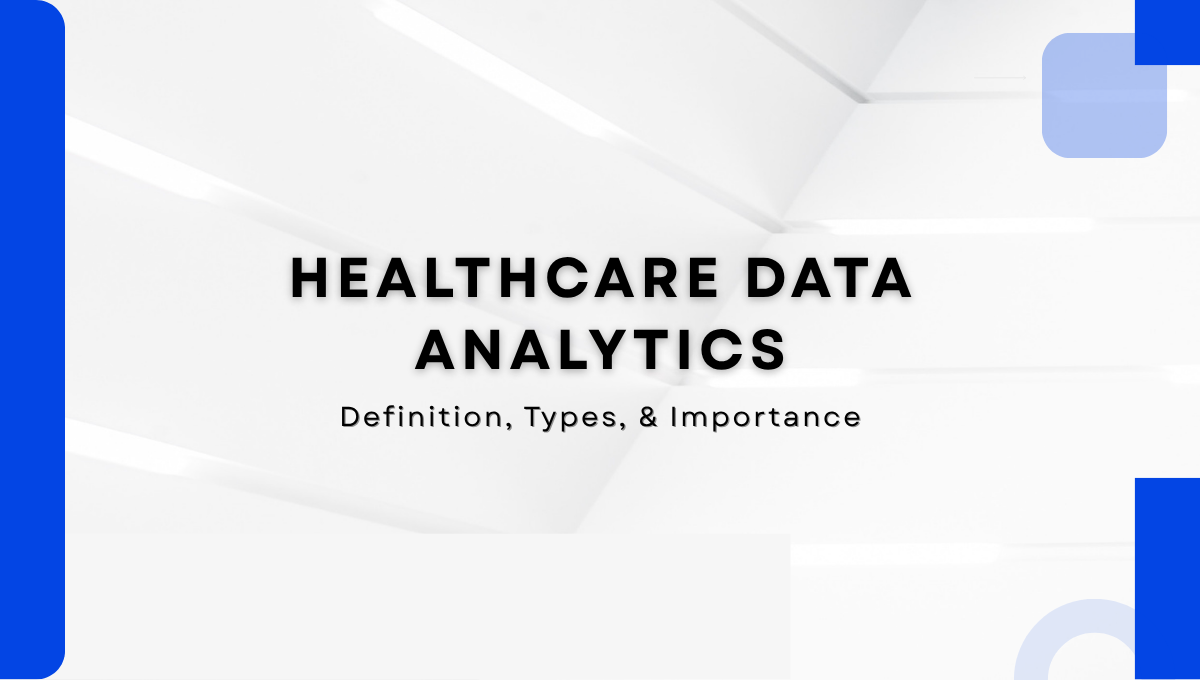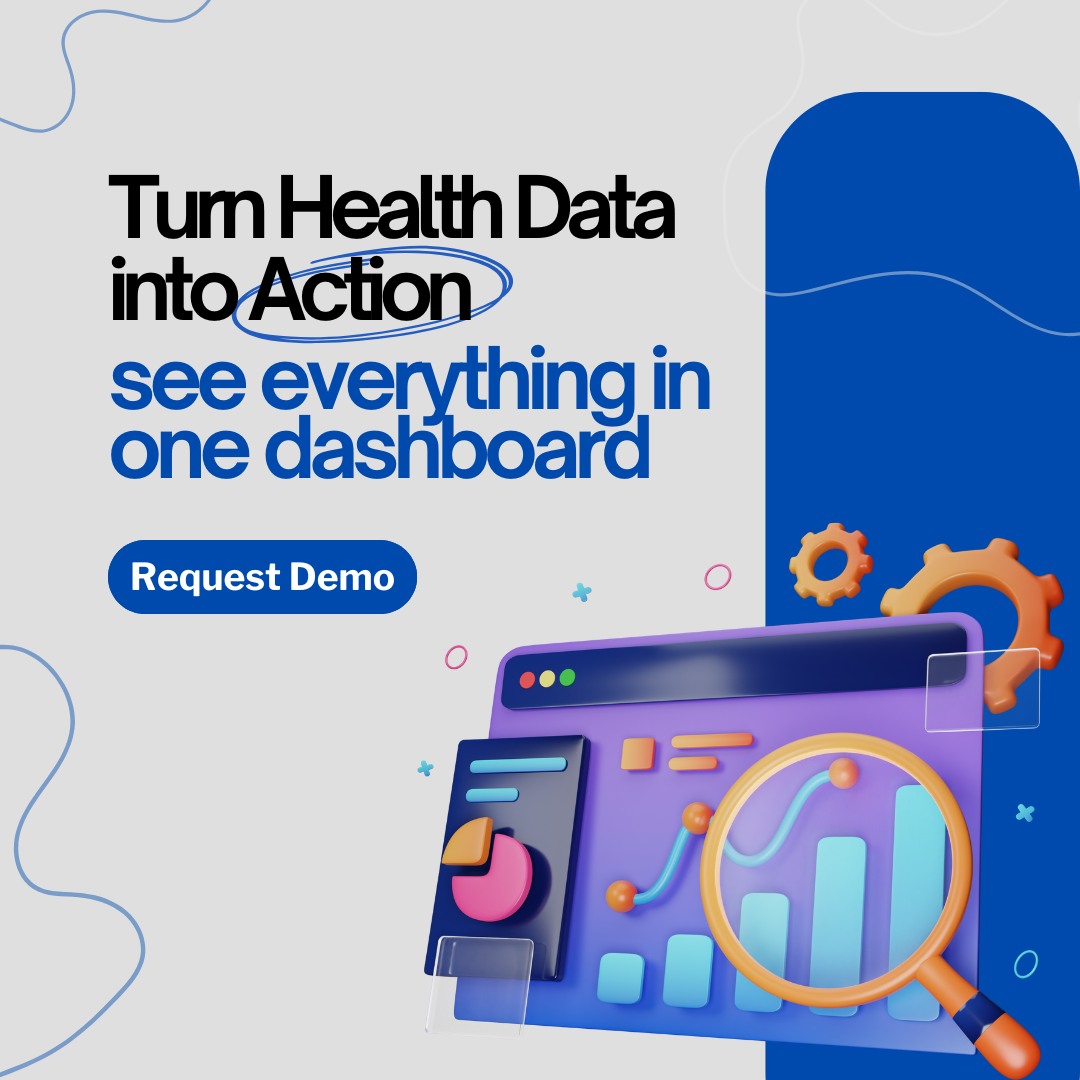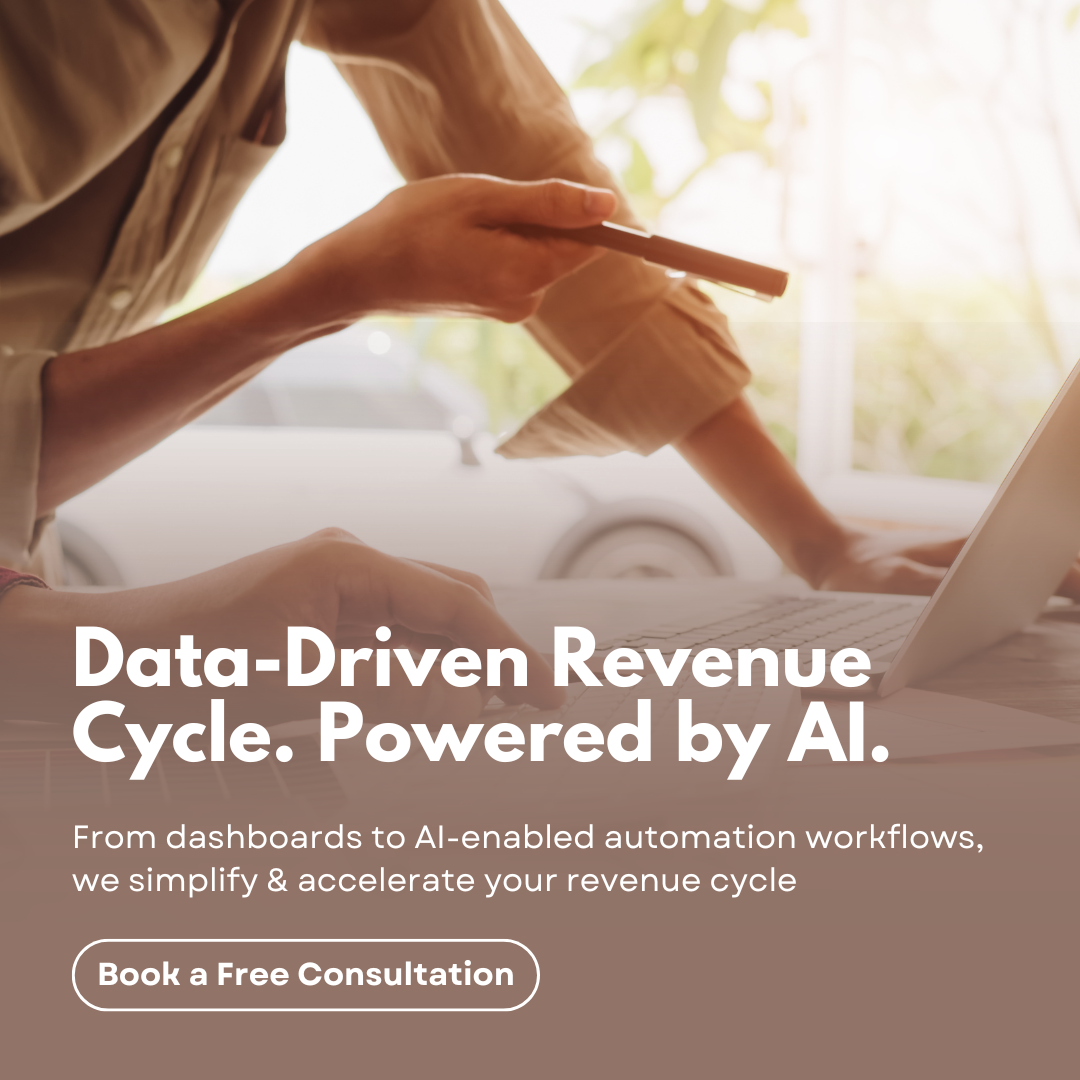In today’s data-driven world, healthcare is undergoing a significant transformation. From personalized medicine to streamlined operations, the power of data analytics is revolutionizing how we approach patient care. From electronic health records (EHRs) to wearable device data, healthcare organizations are collecting more information than ever before. By analyzing this data, we can gain valuable insights that can improve patient outcomes, enhance operational efficiency, and reduce costs. In this blog, we will cover the importance of data analytics in healthcare, how data is available for healthcare organizations, the different types of health data analytics, and the power of data analytics in healthcare.
What is Healthcare Data Analytics?
Before we dive into the importance of data analytics, let’s understand what healthcare data analytics is. Healthcare analytics refers to using data to make smarter decisions in the world of medicine.
Think of healthcare analytics like this: doctors and hospitals collect tons of information – patient records, medical images, lab results, you name it! Healthcare data analytics takes all that data and crunches the numbers to spot trends, identify risks, and figure out the best course of action for each patient.
Key Data Sources for Healthcare Organizations
Healthcare organizations today sit in a goldmine of data but knowing where to find it is key. Below are some of the primary sources:
- Electronic Health Records (EHRs) – EHRs store a wealth of patient information, including demographics, medical history, medications, diagnoses, lab results, and more.
- Public Health Data: Data from government agencies, such as disease surveillance data, can help identify and address public health concerns.
- Medical Imaging: X-rays, MRIs, CT scans, and other imaging data offer critical diagnostic information.
- Health Claims Data: Insurance claims and billing data provide valuable insights into healthcare utilization, costs, and treatment patterns.
- Patient Portals: Patient-generated data can provide valuable insights into patient experiences.
Types of Healthcare Analytics
Healthcare analytics is not a one-size-fits-all approach—there are several types of analytics that serve different purposes.
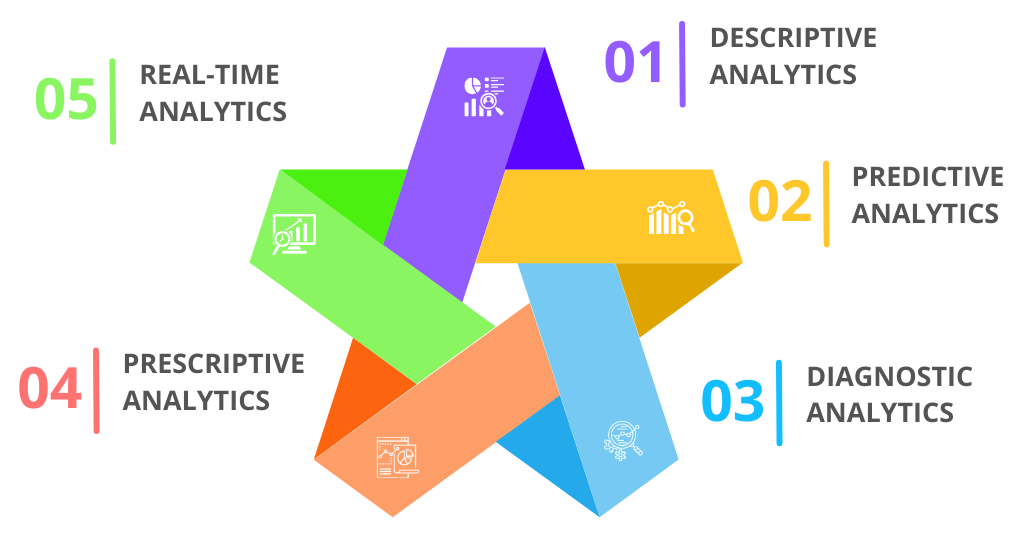
- Descriptive Analytics – Focuses on examining past data to understand patterns, trends, and insights. This helps healthcare professionals track performance, monitor patient outcomes, and identify potential areas for improvement.
- Predictive Analytics – As the name says, it is about looking ahead! Predictive analytics leverages historical data to forecast future trends, empowering healthcare providers to anticipate potential challenges proactively. By identifying patients at high risk for specific conditions, it enables early intervention and personalized care, improving patient outcomes.
- Diagnostic Analytics – While Descriptive Analytics tells what happened, diagnostic analytics tells why it happened. It delves deeper into healthcare data to identify the root causes of issues or patterns.
- Prescriptive Analytics – Makes recommendations for the healthcare organization to take optimal decisions. It not only predicts future outcomes but also suggests the best course of action to achieve the desired results. This can help doctors and administrators make data-driven decisions about treatment plans, resource allocation, or even staff scheduling.
- Real-time Analytics: Processes the data as it is generated, just as the name suggests. This is particularly valuable for monitoring patient vitals, tracking the availability of critical equipment, and enables quick decision-making, improves patient care and operational efficiency.
Each type of healthcare data analytics has its own role in enhancing the healthcare system. These data-driven insights lead to more effective care, better resource utilization, and healthier patients.
The Power of Data Analytics in Healthcare
Healthcare analytics isn’t about crunching numbers; it’s about unlocking hidden patterns and insights that lead to smarter decisions. With data analytics, this future isn’t just a dream; it is becoming a reality.
Driving Better Health Outcomes
By sifting through vast amounts of patient information, we are moving beyond reactive treatments. Early disease detection, personalized care plans, and predictive insights are transforming how we prevent, diagnose, and manage health conditions. This data-driven revolution not only enhances patient outcomes but also optimizes resource allocation and improves the overall efficiency and effectiveness of the healthcare system.
Deliver Personalized Care
By analyzing a ton of information – things like your medical history, what you wear on your wrist, and more – doctors can create treatment plans that are perfect for you. This not only makes treatments work better but also enhances the whole experience. Analytics give doctors the power to make smart decisions, predict how you will react to treatments, and even adjust things on the fly. So, personalized care isn’t just a dream anymore – it’s becoming a reality that is changing how we approach healthcare.
Significant Cost Savings
Let’s face it, healthcare can get expensive. But data analytics can help healthcare businesses save money! Imagine fewer wasted medications, shorter hospital stays, and a more efficient use of the healthcare dollars. Data analytics helps to spot these inefficiencies and find smarter ways to do things to improve patient care in other areas.
Early Disease Detection and Prevention
Wouldn’t it be amazing to catch diseases before they even start causing trouble? That’s where health data analytics comes in. By analyzing massive amounts of patient data, businesses can spot patterns and trends that signal potential health risks. This allows businesses to proactively address these concerns, leading to a healthier population and a more proactive healthcare system.
Reduce Medical Errors
Medical errors can have dire consequences, but data analytics helps minimize them. By analyzing vast amounts of data, we can identify patterns and trends that may lead to errors, such as medication interactions or potential for misdiagnosis. This allows businesses to put safeguards in place, like alerts for potential drug interactions or double-checking systems to prevent mistakes. It’s like having a safety net in place to catch potential problems before they become serious issues.
How VNB can help with Health Care Data Analytics
At VNB Health, we’re all about helping your healthcare team make smart decisions with the data you already have. We know data can feel overwhelming, but with our Health Analytics Solutions, you can unlock valuable insights to steer your organization towards better decision-making, improved patient care, and overall success.
Talk to us about how our health analytics solutions can help your practice make smarter decisions with data.
